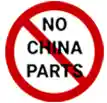Posted on May 12, 2025 bruce brown Electronics
Fuses and circuit breakers are essential protection devices, both serving to prevent short circuits, overloads, and fires within electrical systems. However, they have distinct ways of operating and are suited to different applications, with circuit breakers sometimes being touted as the more reliable choice for their more complex operation and resettable nature. This blog will explore the advantages of fuses over circuit breakers in certain scenarios, offering readers a better understanding of how they operate and when fuses might be a more optimal solution.
While circuit breakers and fuses share a similar end goal of preserving equipment and upholding safety, their internal mechanisms and methods of response vary significantly.
Most circuit breakers operate using an electromechanical system that combines a bimetallic strip and an electromagnet. The bimetallic strip responds to prolonged overcurrent conditions by gradually heating up and bending due to the different expansion rates of its two metals, which triggers the trip mechanism. In the case of a sudden short circuit, the rapid surge in current strengthens the magnetic field within the electromagnet, which immediately pulls a lever to separate the internal contacts and interrupt current flow.
This automatic tripping mechanism can be reset, avoiding an immediate need for replacement. This functionality is particularly valuable in industrial or commercial systems where downtime can be costly and immediate restoration is a priority.
Fuses are single-use devices that contain a thin wire or metal strip enclosed within a casing that is made of glass, ceramic, or plastic. Their conductive element is carefully rated to melt at a specific current threshold, so when excessive current passes through the fuse, the metal element heats up and melts. This physically breaks the circuit to stop current flow and protect downstream equipment.
The benefit of fuses lies in their very few active parts and extremely rapid response. While they must be replaced after each fault, they are an efficient choice for applications that do not demand the capability for an immediate reset.
A significant perk of fuses is their compact and cost-effective design. Depending on the type, fuses are often less expensive than circuit breakers, making them an economical choice for many applications. Moreover, with no switches, toggles, or springs, fuses reduce the number of potential failure points and are easier to integrate into tight enclosures.
A circuit breaker may experience minor delays or contact bounce, which refers to the rapid, repeated opening and closing of electrical contacts as they separate. This phenomenon can be problematic in sensitive circuits, as it can momentarily allow unwanted current to continue flowing. By contrast, a fuse melts and breaks the connection cleanly in a single, uninterrupted action, offering more sensitive protection.
There are multiple types of fuses engineered to support everything from small electronics to industrial-grade machinery, providing system-specific protection. Some notable options include:
In the debate of fuses vs circuit breakers, it is clear that the choice ultimately depends on the nature of the application. For example, electronics and instrumentation circuits—where even brief overcurrents can cause irreversible damage—require the slightly faster response time that fuses can provide. Furthermore, environments that do not require frequent resetting or monitoring benefit from the simplicity of fuse-based protection.
Fuses are especially advantageous in low-voltage DC circuits found in battery-powered systems, such as those in uninterruptible power supplies, telecommunications equipment, and control panels. These settings prioritize quick interruption and minimal maintenance, which aligns well with fuse operation. Similarly, fuses are also used in high-voltage industrial systems like motor protection circuits and capacitor banks, where they serve to isolate faults without the need for complex switchgear. Another setting where fuses tend to be preferred is in household appliances and consumer electronics.
 The only independent
The only independent

“We Proudly Support Intrepid Fallen Heroes Fund that serves United States Military Personal experiencing the Invisible Wounds of War : Traumatic Brain Injury (TBI) and Post Traumatic Stress (PTS). Please visit website (www.fallenheroesfund.org) and help in their valiant effort”.
We hope that you will visit us again the next time you need industrial parts and make us your strategic purchasing partner.
Request for Quote